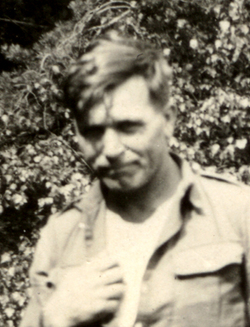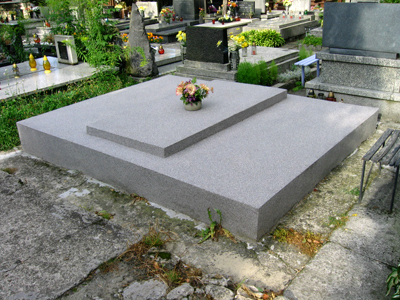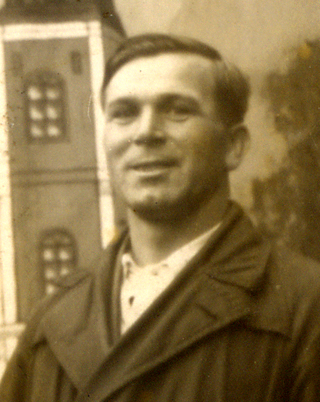the Fablok Band and in 1936 he participated with the band in the dedication ceremony of the Polish transatlantic ship the "Batory" in Gdynia. We can find a reminiscence of him in Maria Ruszkiewicz's book "The Wax Candle" (»Woskowa świeca«) in the description of the national holiday, 3rd of May, celebrated in Chrzanów before WW2:
"[...] After leaving the church a cortège is formed to walk through the most beautiful street of Chrzanów, Henry Avenue. The cortège is led by the marching band of the Locomotive Factory. At its rear, next to a drum adorned with flowers, our cousin Andrzej Baliś is playing clash cymbals, the instrument which is most suitable for his indefatigable nature. The quiet town is being filled with the multiplying echo of rhythmic, sharp sound coming from a pair of bronze cymbals [...]".
Following German-Soviet invasion of Poland in 1939 he took part in combat and was captured by invading Soviet troops. He managed, however, to flee and returned home. His house was confiscated by Germans in c. 1940 and the family found themselves in hard realities of Nazi occupation. His wife Stefania passed away in 1944. He himself died in Chrzanów over 40 years later.
the Fablok Band and in 1936 he participated with the band in the dedication ceremony of the Polish transatlantic ship the "Batory" in Gdynia. We can find a reminiscence of him in Maria Ruszkiewicz's book "The Wax Candle" (»Woskowa świeca«) in the description of the national holiday, 3rd of May, celebrated in Chrzanów before WW2:
"[...] After leaving the church a cortège is formed to walk through the most beautiful street of Chrzanów, Henry Avenue. The cortège is led by the marching band of the Locomotive Factory. At its rear, next to a drum adorned with flowers, our cousin Andrzej Baliś is playing clash cymbals, the instrument which is most suitable for his indefatigable nature. The quiet town is being filled with the multiplying echo of rhythmic, sharp sound coming from a pair of bronze cymbals [...]".
Following German-Soviet invasion of Poland in 1939 he took part in combat and was captured by invading Soviet troops. He managed, however, to flee and returned home. His house was confiscated by Germans in c. 1940 and the family found themselves in hard realities of Nazi occupation. His wife Stefania passed away in 1944. He himself died in Chrzanów over 40 years later.
Family Members
Sponsored by Ancestry
Advertisement
Explore more
Sponsored by Ancestry
Advertisement












